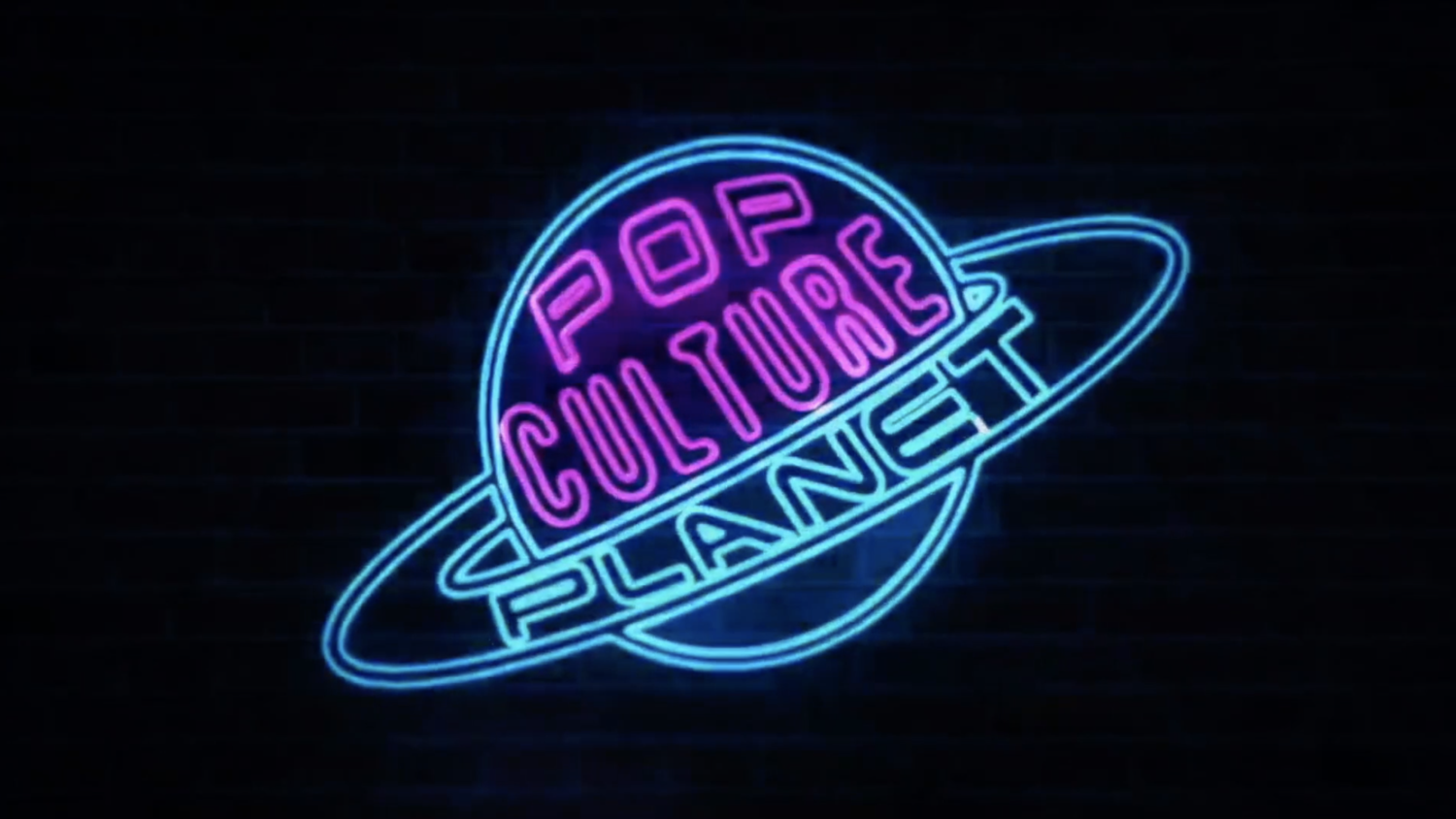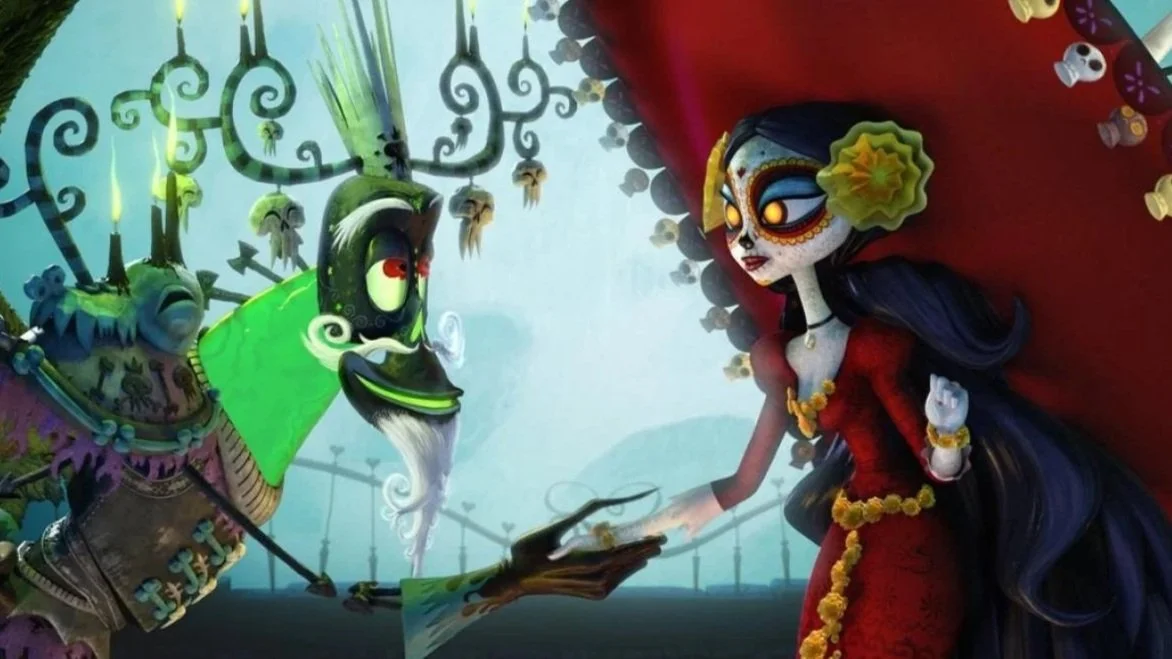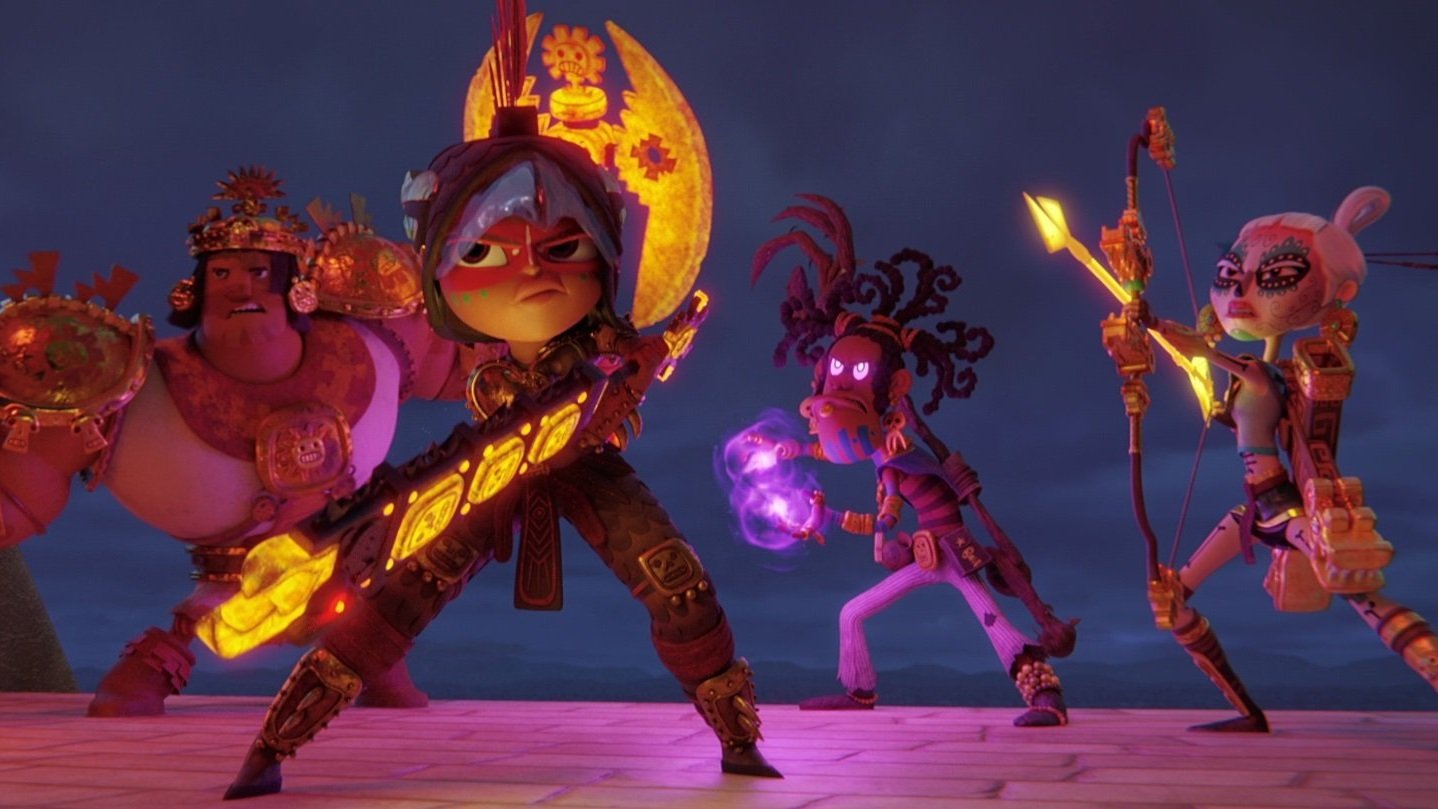Pop Culture Planet Podcast: Jorge R. Gutierrez Shares The Secret To Universal Storytelling
If it’s meant to be, then it’s up to me!
In a brand new episode of the Pop Culture Planet podcast, Kristen Maldonado is joined by the brilliant Jorge R. Gutierrez — a Mexican animator, writer, director, and voice actor — best known for El Tigre: The Adventures Of Manny Rivera, The Book Of Life, and Maya and the Three. He talks about finding the freedom to pursue animation despite not feeling represented, the future of Hollywood, how his autism diagnosis informs his art, and shares fun facts about his projects, including the upcoming Netflix film I, Chihuahua with comedian Gabriel “Fluffy” Iglesias.
Episode Quotes
Jorge R. Gutierrez on not seeing himself representing in Hollywood as a kid: “When I saw Star Wars as a six-year-old I told my dad afterwards, ‘Dad, did we not make it? Did people like us not make it in the future? Because nobody looks like us.’ And my dad, being the good dad that he is, he was like, ‘Oh okay, you know, Chewbacca's Mexican. Of course we made it!’ But it was one of those moments as a kid where, again, if you didn't see yourself in movies, then you started thinking, ‘Are we not worth it? Are we not meant to be heroes? Are we not meant to travel into space?’”
Gutierrez on finding the freedom to pursue an animation career: “All that stuff in a weird way just fueled me more. It was like, all right, I guess I have to try harder. I was that guy who the more people said no, the more it just fueled me. In a weird way, it kind of became my stubborn way to prove, no, that thing you think is my weakness, I'm going to turn that into my strength.”
Gutierrez on the struggles to tell authentic stories: “I've become very focused on how to make the culture accessible and digestible and empathetic to people from other places, but, at the same time, being incredibly smart about authenticity because if we're not careful — and I'm seeing it now — when things don't do well, they blame the authenticity. Then the message is ‘we don't want stuff from them.’ If a movie about a culture, made by people not of the culture, does really well worldwide and the movie of the culture, made by the people of the culture, doesn't, Hollywood goes, ‘See we told you so.’”
Gutierrez on the secret to universal storytelling: “I'm a big hip-hop fan. I always like the first albums when rappers break through. They were always about the struggle to make it and their lives. Same thing with books and same thing with honestly my favorite [first-time] filmmakers. [Their] movies are usually about where they're from and, because they had limited resources, they're telling really personal stories. So like a scientist, I deduced all this stuff. What we make should feel like it's a privilege. That we're letting people into our worlds, but the closer people look at this painting of the world, they should realize it's a mirror and all these experiences can happen to them or might have happened to them or people they know ,so the themes are universal. That's how I break down my work now and I can go as crazy as I want as long as I anchor the heart in something universal.”
Gutierrez on connecting stories: “The stuff I make are basically moving murals and I want all these murals to connect at the end. When it's all done, it's all connected. I'm a big believer in that shared universe idea and there are recurring themes or recurring characters or recurring evolutions. I think the way we consume media now — thanks to the Internet — is now the communities can grow and exchange theories. I'm on the autism spectrum so I watch stuff over and over and over, so I definitely make stuff with layers knowing that hopefully people are going to re-watch this and they're going to start catching little things.”
Gutierrez on staying true to his vision: “If these things don't do well, then I don't get another shot to do them, so for me if I'm gonna fall, I'm gonna fall on my own sword. If I make something and it doesn't do well, then it's on me, but, if it does well, then let me make more. I got this big warning from Guillermo [del Toro] and he said, ‘You have to be careful in your career because if you make something that you are not passionate about and it becomes very successful you're screwed because people will want that from you forever and ever. If you make something that you love and it becomes incredibly successful, that's really bad too, because everybody's going to want you to do that forever. So what you want is [to[ make something you love that a lot of people love, but it's not such a big thing that forever and ever you can never do anything again.’ So that's been my journey so far.”
Gutierrez on impacting others: “When I saw Seven Samurai as a kid in Mexico city […] at the end, I told my dad, ‘When I grow up, I want to be a samurai.’ So my dream is a kid in Japan watching Maya and the Three and saying, ‘Dad, when I grow up, I want to be an eagle warrior.’”
Gutierrez on streaming struggles: “I think with Disney+ and HBO Max and Paramount+ and Amazon and Apple and Netflix, it's really crowded in the streaming world. So [what] they're saying now is we're looking to make things the audience wants to see [and] that's just code for ‘we want to make hits’ and usually making hits means playing it safe […] and taking less risks.”
Gutierrez on Netflix’s marketing: “Netflix gets to control all that narrative. They go, “Queen’s Gambit had zero marketing and it became one of the biggest hits in the world, Squid Game had zero marketing and people just discovered it.’ So their philosophy to us is, if it's good, people will find it and people will tell other people and it will grow. That's super hard and, while those are successful examples, man, it's tough and, for creators, a lot of the time it falls on them to promote their thing.”
Gutierrez on Hollywood skipping out on Latinos: “Look at how much money you're leaving on the table. Look at the statistics. Look at how 34% of box office audiences is Latino. The Latinos went back to the movie sooner than anybody else. Latino moms spend the most on their kids than anybody else. Look at the power of these communities. Look at how unserved they are and look at how much money you're not making. Look at how much money movies directed [by] and shows created [by] and shows with diverse casts are making. That's how you get [Hollywood] to turn, but every time something doesn't do well the [Hollywood] robot just looks away more.”
Listen to more Pop Culture Planet, below:
Hosted by TV and film critic Kristen Maldonado, Pop Culture Planet is a video podcast featuring analytical pop culture discussions and interviews with diverse voices in the entertainment space. Watch episodes on youtube.com/kaymaldo or listen on your favorite podcast platforms, from Spotify to Apple Podcasts and beyond.






